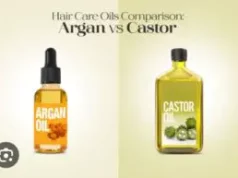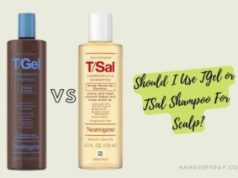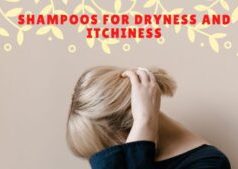Shampoo has been a staple in our hair care routines for decades, but as people become more conscious of the ingredients they use and their impact on the environment, the search for alternative hair cleansing methods has grown. Shampoo alternatives offer a way to cleanse and care for your hair without relying on traditional commercial products. In this article, we will explore various shampoo alternatives, including natural options and do-it-yourself (DIY) alternatives.
Importance of Exploring Shampoo Alternatives
Exploring shampoo alternatives is important for several reasons. First, many commercial shampoos contain harsh chemicals such as sulfates, parabens, and synthetic fragrances that can strip the hair of its natural oils and cause scalp irritation. Switching to alternatives can help you avoid these potentially harmful ingredients.
Second, traditional shampoos often come packaged in plastic bottles, contributing to plastic waste and environmental pollution. By exploring alternative options, you can reduce your plastic consumption and minimize your ecological footprint.
Lastly, some individuals may have specific hair concerns or conditions that are not adequately addressed by conventional shampoos. Trying alternative methods can provide a personalized approach to hair care and potentially improve the health and appearance of your hair.
Also Read : Best Korea Hair Shampoo in 2023
11 Best Shampoo Alternatives
1. Water-Only Washing:
Water-only washing involves using just water to cleanse the hair and scalp. This method relies on the mechanical action of massaging the scalp and rinsing thoroughly to remove dirt and excess oils. While it may take some time for your scalp to adjust to this method, water-only washing can help restore the natural balance of oils in your hair and scalp.
2. Apple Cider Vinegar Rinse:
An apple cider vinegar (ACV) rinse can be used as a conditioning and clarifying treatment. Mix one part ACV with three parts water and pour the mixture over your hair after washing. Allow it to sit for a few minutes before rinsing thoroughly. ACV helps restore the pH balance of your hair, remove product buildup, and add shine.
3. Baking Soda as a Shampoo Substitute:
Baking soda can be used as a natural cleanser to remove excess oils and impurities from the hair. However, it should be used sparingly as it can be drying. Mix one tablespoon of baking soda with one cup of water, apply it to your scalp, and massage gently. Rinse thoroughly and follow up with an acidic rinse, such as the ACV rinse mentioned earlier, to restore the pH balance.
4. Co-Washing (Conditioner Washing):
Co-washing involves using a silicone-free conditioner to cleanse the hair instead of shampoo. This method is particularly beneficial for individuals with curly or dry hair, as it helps retain moisture. Apply the conditioner to wet hair, massage the scalp, and rinse thoroughly. It is essential to choose a conditioner that is free of silicones and sulfates.
Also Read: Best Korean Hair Dye in 2023
5. Dry Shampoo as an Alternative:
Dry shampoo is a convenient alternative to traditional shampoo, especially when you’re on the go or need to extend the time between washes. It comes in powder or aerosol form and absorbs excess oil from the scalp. Apply it to the roots of your hair, let it sit for a few minutes, and then brush it out. However, dry shampoo should not be used as a replacement for regular washing, as it doesn’t cleanse the hair but rather provides a temporary fix.
6. Herbal and Botanical Cleansers:
Herbs and botanicals such as shikakai, soapwort, and soap nuts can be used to create natural hair cleansers. These ingredients have cleansing properties and can be mixed with water to create a natural shampoo alternative. They are gentle on the hair and scalp while effectively removing dirt and oil buildup.
7. Aloe Vera Gel for Cleansing
Aloe vera gel is a versatile natural ingredient that can be used for various purposes, including cleansing the hair and scalp. It has soothing and moisturizing properties that can help nourish the hair while gently removing dirt and excess oil. To use aloe vera gel as a cleanser, you can simply apply it directly to your scalp and hair, massage it in for a few minutes, and then rinse thoroughly. Some people also mix aloe vera gel with other natural ingredients like coconut milk or essential oils for added benefits.
8. Herbal Hair Cleansers
Many herbs like shikakai, reetha, and amla have been traditionally used as natural cleansers for the hair. You can make a herbal hair cleanser by mixing these powdered herbs with water to form a paste. Apply the paste to your scalp and hair, massage it in, and rinse thoroughly.
9. Clay and Mud Masks for Hair:
Clay and mud masks can be beneficial for the hair as they help absorb excess oil, remove impurities, and promote a healthier scalp. Bentonite clay and rhassoul clay are commonly used for hair masks. To use them, mix the clay with water or aloe vera gel to form a paste, apply it to your scalp and hair, and let it sit for about 15-20 minutes. Rinse thoroughly and follow up with a conditioner if needed.
10. Soap Nuts for Natural Cleansing
Soap nuts, also known as reetha, are natural fruits that contain a substance called saponin, which acts as a gentle cleanser. To use soap nuts for hair cleansing, boil a few soap nuts in water until it forms a soapy solution. Let it cool, strain the liquid, and use it as a shampoo alternative. Massage the liquid into your scalp and hair, rinse thoroughly, and follow up with a conditioner if desired.
also Read: Best Hair Moisturizer For Black men
11. Honey and Coconut Milk Cleansing
Honey and coconut milk can be combined to create a nourishing and cleansing hair treatment. Mix equal parts honey and coconut milk to form a smooth mixture. Apply it to your scalp and hair, massaging it gently. Leave it on for about 15-20 minutes and then rinse thoroughly. This mixture can help moisturize and cleanse your hair, leaving it soft and healthy.
Conclusion and Final Thoughts on Shampoo Alternatives:
There are various natural alternatives to commercial shampoos that can be effective in cleansing the hair and scalp while minimizing the use of harsh chemicals. Aloe vera gel, baking soda, apple cider vinegar, herbal hair cleansers, clay and mud masks, soap nuts, and honey and coconut milk are just a few examples of these alternatives. It’s important to note that everyone’s hair is unique, and what works for one person may not work for another. It may take some experimentation to find the best alternative that suits your hair type and needs. Additionally, it’s a good idea to consult with a dermatologist or hair care professional if you have any specific concerns or conditions.
Frequently Asked questions
Q: Are shampoo alternatives as effective as commercial shampoos?
A: The effectiveness of shampoo alternatives can vary depending on individual hair types and needs. Some people find that natural alternatives work well for them and provide satisfactory cleansing and nourishment for their hair. However, it’s important to note that natural alternatives may not produce the same lathering or foaming action as commercial shampoos due to the absence of certain synthetic ingredients. Additionally, some alternatives may require a period of adjustment for your hair to adapt to the new cleansing method. It’s best to experiment and see what works for you.
Q: Can shampoo alternatives completely replace commercial shampoos?
A: Shampoo alternatives can be used as a substitute for commercial shampoos, but whether they can completely replace them depends on personal preference and hair type. Some people find that natural alternatives work well for regular cleansing, while others may choose to use commercial shampoos occasionally or for specific hair concerns. It’s important to listen to your hair’s needs and find a routine that works for you.
Q: Can shampoo alternatives cause any side effects?
A: Shampoo alternatives that use natural ingredients are generally considered safe for most people. However, it’s important to be aware of potential allergies or sensitivities to specific ingredients. Before trying any new alternative, it’s recommended to perform a patch test on a small area of skin to check for any adverse reactions. If you experience any itching, redness, or irritation, discontinue use immediately and consult a healthcare professional.
Q: Can shampoo alternatives help with specific hair concerns such as dandruff or oily scalp?
A: Some shampoo alternatives, such as apple cider vinegar, clay masks, and herbal hair cleansers, have been known to help with specific hair concerns like dandruff or oily scalp. Apple cider vinegar can help balance the pH level of the scalp, which may alleviate dandruff symptoms. Clay masks can absorb excess oil and impurities from the scalp, helping to control oiliness. Herbal hair cleansers, such as shikakai or reetha, have traditionally been used to address specific hair concerns. However, it’s important to note that individual results may vary, and it’s always best to consult with a dermatologist or hair care professional for personalized advice.
Q: Are there any precautions to keep in mind when using shampoo alternatives?
A: While natural shampoo alternatives are generally safe, it’s important to keep a few precautions in mind. First, some ingredients may be drying, so it’s important to follow up with a conditioner if needed to maintain the hair’s moisture balance. Second, be cautious when experimenting with new ingredients and observe how your hair and scalp react. If you have any pre-existing scalp conditions or concerns, it’s best to consult with a healthcare professional before trying new alternatives. Finally, remember that natural alternatives may require some trial and error to find what works best for your hair type and needs.






